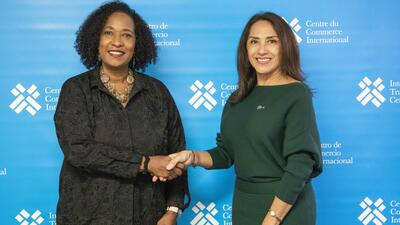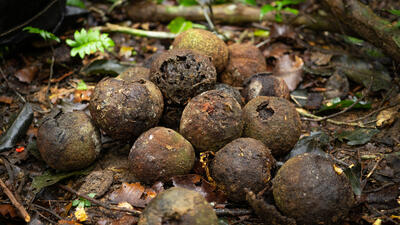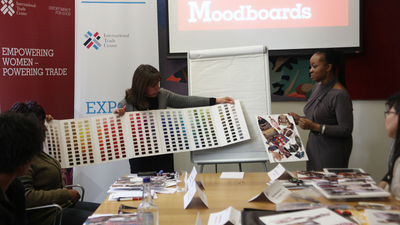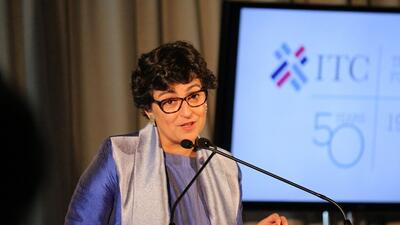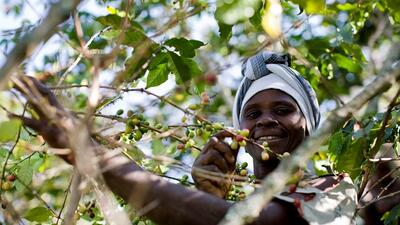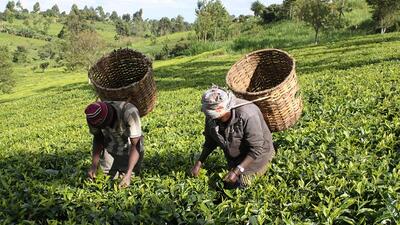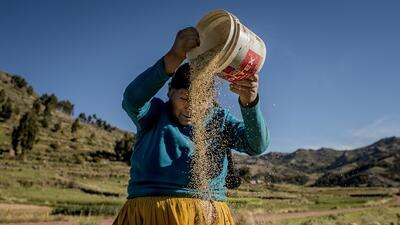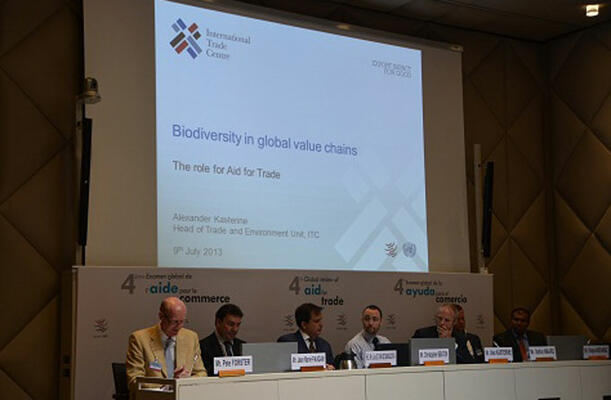
Helping the environment to help the world’s poor
Addressing environmental issues through Aid for Trade is a successful way to achieve results for both poverty reduction and environmental protection. In fact, by mainstreaming the environment into Aid for Trade projects, negative effects often associated with trade development – such as natural resource depletion, pollution and climate change – could be reversed.
Those were among the main messages at ‘Mainstreaming Environment into Aid for Trade: Improving Sustainability of Global Value Chains’, a side event co-hosted by the International Trade Centre (ITC) at the Global Review of Aid for Trade at the World Trade Organization (WTO) on 9 July.
‘Mainstreaming the environment into Aid for Trade means two things,’ said Jean-Marie Paugam, Acting Executive Director of ITC, opening the debate. ‘Harnessing export opportunities for green products and services and improving the environmental sustainability and climate resilience of trade.’
New market opportunities are emerging that support green trade and improve the incentives for business to ensure both competitiveness and environmental sustainability, he said, adding that development actors ‘need to use these opportunities to integrate environmental sustainability into Aid for Trade.’
Biotrade has played an important part in Peru’s export diversification, said Luis Enrique Chávez Basagoitia, Peru’s Ambassador and Permanent representative to the WTO and United Nations organizations in Geneva. ‘Development of a sustainable natural products industry has made a strong contribution to Peru’s economic growth over the past decade. With the support of Aid for Trade, Peru has been able to develop a competitive industry that sustainably sources our rich biodiversity,’ Mr Chávez Basagoitia said, adding that the industry has created more than 10,000 jobs.
Rethinking Aid for Trade
The International Institute for Sustainable Development (IISD) launched a publication at the meeting, providing hands-on advice to practitioners on how to include environmental considerations in development projects. ‘Integrating Environment into Aid for Trade: A handbook’ also argues why environment matters in Aid for Trade.
‘The environment can be fundamental to the Aid for Trade initiative,’ said Chris Beaton, a research analyst at IISD. ‘High environmental performance can increase exports and there is also a growing demand for environmentally classified products. But Aid for Trade also needs to rethink how it can reduce its [negative] impact.’
Participants at the event shared several examples of successful Aid for Trade initiatives in the food, energy and wildlife trade sectors, which also integrate an environmental agenda alongside export promotion and build linkages to global value chains.
Stefan Maard, a Senior Business Development Adviser at Novozymes, a Danish biotechnology company, shared his firm’s successful investment experience in Mozambique to roll out innovative and scalable ethanol fuel technologies. These technologies have enabled households to break their reliance on burning charcoal for energy – a major source of deforestation, greenhouse gas emissions and indoor air pollution. In partnership with other international partners, Novozymes has also developed a food processing plant that generates fuel ethanol from food waste. The technology has already created local jobs, improved household incomes and led to reductions in deforestation and greenhouse emissions.
Safeguarding biodiversity and livelihoods
Alex Kasterine, Head of Trade and Environment at ITC, said that the wildlife trade provided livelihood benefits to thousands of households in South-east Asia, but its sustainability and thus future economic viability was threatened by inadequate traceability systems. ‘Aid for Trade can work with the private sector and the scientific community to strengthen sustainability of sourcing and so safeguard both biodiversity and livelihoods,’ he said.
ITC’s Trade and Environment Unit is developing a public-private partnership with Kering, the parent company of Gucci, and the International Union for the Conservation of Nature to work towards improving the sustainability of python skin sourcing used by the high-end fashion industry, Mr Kasterine said.
The panellists also discussed the impact of climate change on developing countries, and the need to support businesses and exporters in dealing with adaptation challenges. Vinaye dey Ancharaz, a Senior Development Economist at the International Centre for Trade and Sustainable Development (ICTSD), suggested that there was a need for a stronger role to be played by Aid for Trade in climate-change adaptation and mitigation.
‘There are clear gains to be made by complementing climate change funding with specific Aid for Trade funding,’ said Mr Ancharaz, ‘these include more resilient and sustainable trade flows.’
The event was co-hosted by ITC, the governments of Denmark and Canada, IISD and ICTSD.
Learn more about how ITC is training Kenyan tea farmers to reduce the effects of climate change




